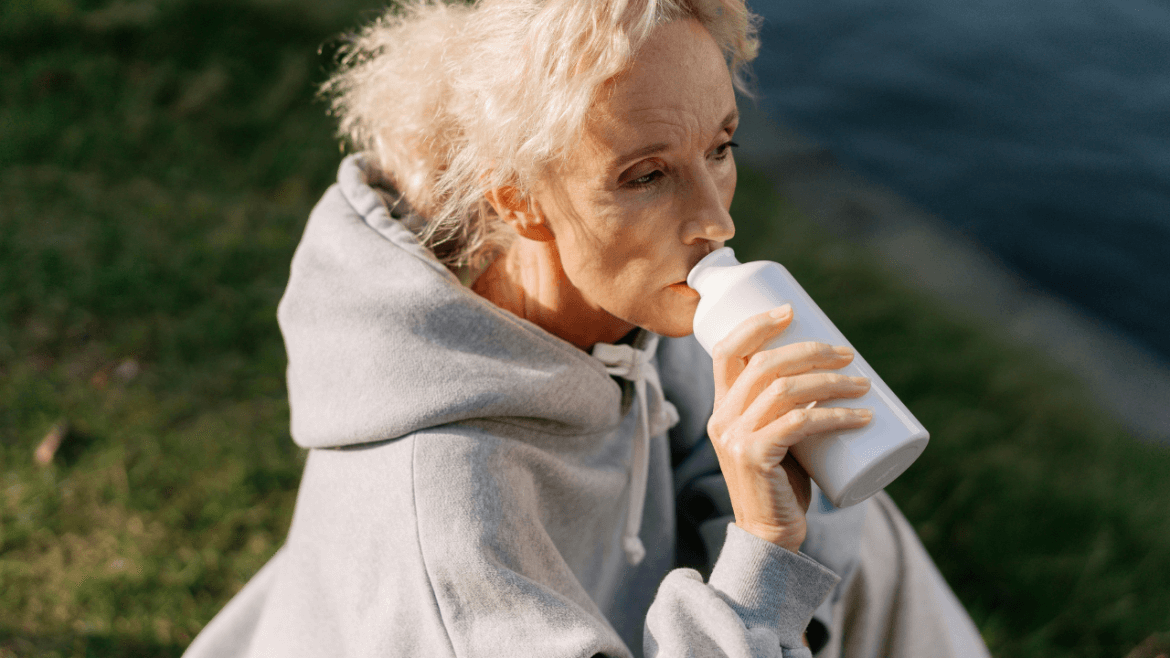Did you know that Leading Edge Senior Care has a Dementia Support Group? We meet monthly in Mesa. For more details <click here>
What Drinks Should A Diabetic Senior Avoid?
Managing diabetes requires careful attention to diet, and beverages are often overlooked in this process. For diabetic seniors, choosing the right drinks is just as crucial as monitoring food intake.
Certain beverages can lead to sharp spikes in blood sugar levels, which may have serious consequences for their health. Understanding which drinks to avoid can help diabetic seniors maintain better control over their condition, improve their overall well-being, and prevent complications.
Why Beverages Matter for Diabetic Seniors
The liquid calories and sugars in many drinks can have a more immediate impact on blood sugar levels than solid foods. Drinks that are high in sugar or carbohydrates are absorbed quickly by the body, causing rapid spikes in glucose levels. For seniors with diabetes, these fluctuations can lead to fatigue, confusion, and even dangerous health emergencies such as hyperglycemia.
Staying hydrated is vital for everyone, but for diabetics, proper hydration also aids in flushing out excess sugar through the urine. Choosing the wrong beverages can counteract these benefits, making it even more important to understand the options available.
Sugary Drinks: The Most Dangerous Option
Sugary drinks like sodas, sweetened teas, and fruit punches are some of the worst offenders for diabetic seniors. These beverages are packed with high amounts of sugar and offer little to no nutritional value. A single can of soda, for instance, can contain up to 40 grams of sugar—far exceeding the recommended daily limit for diabetics.
Consuming these drinks can cause an immediate spike in blood sugar, followed by a crash that leaves seniors feeling drained. Regular consumption can also lead to weight gain, increased insulin resistance, and a higher risk of complications such as heart disease.
Fruit Juices: The Hidden Sugar Trap
While fruit juices are often perceived as healthy, they can be problematic for diabetics due to their high natural sugar content. Even 100% fruit juices, such as orange or apple juice, can cause a significant rise in blood sugar levels.
Juices lack the fiber found in whole fruits, which slows the absorption of sugar. This means the sugar in juice hits the bloodstream rapidly, making it difficult for diabetics to maintain stable glucose levels. Instead of drinking juice, diabetic seniors can opt for whole fruits in moderation to gain the nutritional benefits of fiber along with the natural sugars.
Alcohol: Proceed with Caution
Alcohol can be particularly tricky for diabetic seniors. While occasional moderate consumption may not pose significant risks for everyone, alcohol can interfere with blood sugar regulation. Certain alcoholic drinks, like sweet wines, cocktails, and mixed drinks, contain high levels of sugar and carbohydrates.
Additionally, alcohol can mask the symptoms of low blood sugar, making it difficult for seniors to recognize when their glucose levels are dropping dangerously. For those who wish to consume alcohol, it’s essential to consult a healthcare provider and stick to safer options, like dry wines or light beers, in moderation.
Energy Drinks: Avoid the Buzz
Energy drinks are a poor choice for anyone with diabetes, especially seniors. These beverages are loaded with sugar and caffeine, a combination that can cause blood sugar spikes and increased heart rate. High caffeine levels may also interfere with medications commonly prescribed to diabetics, creating additional health risks.
Instead of energy drinks, diabetic seniors should prioritize natural energy sources, like balanced meals, regular exercise, and sufficient sleep.
Flavored Coffee and Specialty Drinks
Flavored coffee drinks, such as lattes and frappuccinos, are often laden with sugar, syrups, and whipped cream. These indulgent beverages can contain more calories and sugar than a full meal, making them unsuitable for diabetics.
Plain black coffee or coffee with unsweetened milk alternatives is a much better option. For those who prefer a sweeter flavor, using a sugar substitute like stevia can provide the desired taste without spiking blood sugar levels.
Better Beverage Choices for Diabetic Seniors
Now that the drinks to avoid are clear, it’s equally important to highlight healthier options. Water remains the best choice for hydration, as it has zero calories and helps flush excess sugar from the body. Unsweetened herbal teas, sparkling water, and beverages flavored with fresh fruit slices are other excellent alternatives.
Low-sugar plant-based milks, such as almond or coconut milk, can also be a good addition to the diet. For seniors who enjoy juice, diluting it with water can reduce the sugar content while still providing flavor.
The Emotional Connection to Beverages
For many seniors, drinks like sweet teas or juices may hold sentimental value, as they’re often associated with comforting rituals or happy memories. Making the shift to healthier alternatives can be challenging, both physically and emotionally. Encouragement and support from family members can make the transition smoother.
Highlighting the positive impacts of better beverage choices—such as increased energy, fewer glucose fluctuations, and improved health—can motivate seniors to embrace the change.
Conclusion
Understanding what drinks to avoid is a vital step in managing diabetes, particularly for seniors. Sugary beverages, fruit juices, alcohol, and energy drinks pose significant risks and can undermine efforts to maintain stable blood sugar levels.
By replacing these options with healthier alternatives, diabetic seniors can improve their health, enjoy steady energy levels, and reduce the risk of complications. Making mindful beverage choices isn’t just about avoiding harmful drinks; it’s about empowering seniors to live healthier and more fulfilling lives.

